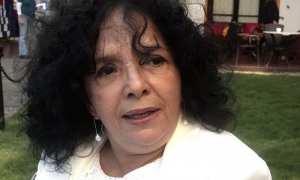
The First International Workshop on Afro-American Diversity, convened by Casa de las Americas and focused on educational, cultural and communicational strategies for the anti-colonial struggle, was characterized by an enlightening discussion, given both the knowledge shared and the presentation of practical experiences in confronting racist imperial hegemony.
The workshop, held the first week of November, provided an opportunity for an enriching exchange, ranging from the inaugural lecture, “Contributions of anti-racist decolonial feminism,” by Dominican activist and singer-songwriter Ochy Curiel, based in Colombia, to a presentation of the achievements and aspirations of Cuba’s Afro-descendant Neighborhood Network, which in a western Havana’s municipality is working to develop political consciousness via popular education, to contribute to the definitive eradication of discrimination and equity gaps based on skin color.
Curiel argued for the importance of a liberating, anti-Eurocentric feminism that builds new theoretical reference points and encourages practices far removed from the vestiges of colonialism and interacts with each and every one of the region’s social emancipation projects, based on their specific contexts and dynamics.
The participants learned about what La Batucada Revoltosa has been doing in Colombia, led by women taking a stand against violence and oppression, using rhythmic and dance performances,.
Milena Patiño, a coordinator of La batucada, called for building alliances and working for a profound transformation of the social fabric, starting in the streets, where the language of our bodies and the conviction of our words raise consciousness about the importance of popular participation.
For its part, the Afro-descendant Neighborhood Network, first launched in La Lisa with the leadership of activists Maritza López, Idelsy Alfonso and Damayanti Matos, over nine years has extended its work to projects and community centers in other municipalities of the capital and the Matanzas city of Cárdenas.
For researcher and essayist Zuleica Romay, director of the Casa de las Americas’ Afro-American Studies Program, the workshop sessions, with intellectuals and activists from the Dominican Republic, Colombia, Costa Rica and Spain participating online, provided an opportunity to disseminate concepts and make visible actions aimed at combating epistemic racism and discrimination of all kinds.






